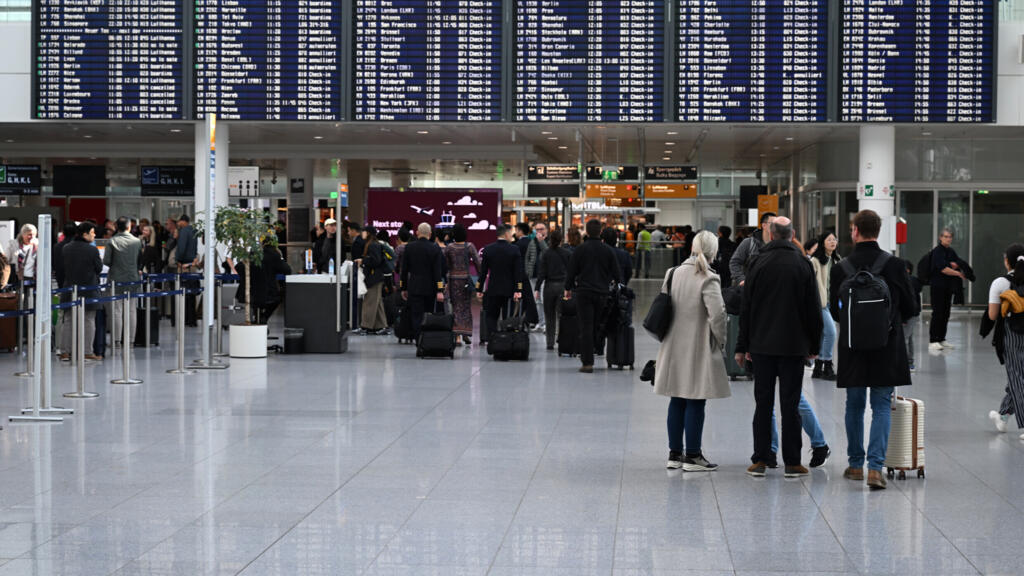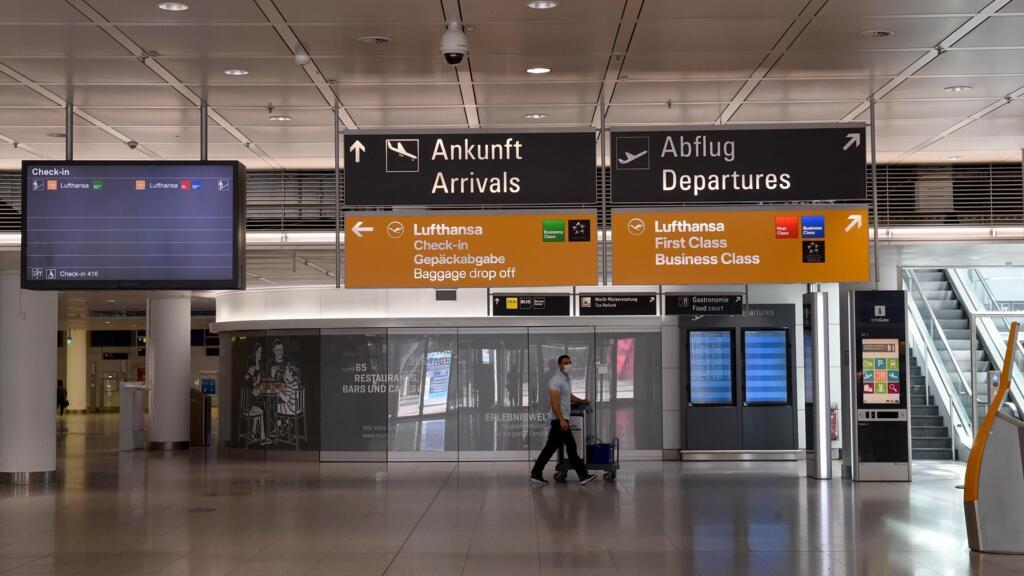Munich Airport Operations Suspended Due to Drone Sightings
Munich Airport experienced a significant disruption as operations were suspended for a second consecutive day on Friday following the sighting of drones near its runways. This incident has caused considerable chaos, leading to the cancellation and delay of dozens of flights and leaving thousands of passengers stranded both at the airport and on board aircraft.
The drone sightings at Munich Airport are part of a larger trend as Europe grapples with increasing reports of unauthorized drone activities. Authorities are particularly concerned that these incidents may be linked to geopolitical tensions, including aspects related to Russia's ongoing war in Ukraine. This situation raises alarms about safety and security regulations near airports and other critical infrastructure across the continent.
As the situation unfolds, the airport management has emphasized its commitment to passenger safety, stating that no flights would be allowed to take off or land until the drone threat was fully assessed and neutralized. Passengers have been advised to check with their airlines regarding the status of their flights, as the disruption has affected numerous carriers operating out of Munich. Airline officials are working to accommodate affected travelers, but the process has proven challenging due to the scale of cancellations.
Local authorities and aviation security teams are actively investigating the source and intent of the drone activity. The Federal Aviation Office in Germany has been called to address the situation and implement measures to prevent future occurrences. Meanwhile, there are calls for tightening regulations surrounding drone use, especially in sensitive areas such as airports where safety is paramount.
In recent months, various European cities have reported similar incidents involving drones in the vicinity of airports or restricted airspace, prompting fears that drone technology could be exploited for malicious purposes. The implications of such actions can have devastating consequences, particularly in light of heightened security measures and surveillance efforts across the region.
As law enforcement agencies work to identify those responsible for the drone sightings at Munich Airport, the incident serves as a reminder of the broader challenges posed by drone technology in commercial airspace. The growing accessibility of drones raises the stakes for regulators, as they must balance the benefits of drone usage in legitimate contexts against the potential risks posed by misuse.
Overall, the situation at Munich Airport highlights the urgent need for coordinated efforts between government authorities, aviation companies, and the drone manufacturing industry to ensure that safety protocols are robust enough to handle these emerging threats. The need for public awareness campaigns regarding the responsible use of drones may also be critical in mitigating future risks associated with drone-related incidents.












